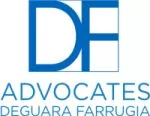The EU Commission adopted an amendment to the recently introduced Temporary Framework for State aid measures to support the economy in the current COVID-19 outbreak so that now Member States may accelerate research, testing and production of coronavirus relevant products, further protect jobs and support the economy in the context of the coronavirus outbreak.
In essence, the amendment extended the scope of the Temporary Framework by adding the following five types of aid measures:
-
Support for Coronavirus related research and development (R&D)
This measure addresses the current health crisis, allowing Member States to grant aid for coronavirus and other relevant antiviral R&D. Such aid can take the form of direct grants, repayable advances or tax advantages. Moreover, a bonus may be granted for cross-border collaboration projects.
-
Support for the construction and upscaling of testing facilities
This measure permits Member States to grant aid to support investments enabling the construction or upscaling of infrastructures needed to develop and test products useful to tackle the coronavirus outbreak, up to first industrial deployment. This aid can take the form of direct grants, tax advantages, repayable advances and/or no-loss guarantees. Furthermore, in order to encourage cooperation and quick support, businesses may also benefit from a bonus when the investment is supported by more than one Member State and when it is concluded within two months from the aid.
- Support for the production of products relevant to tackle the coronavirus outbreak
This measure also enables Member States to grant aid in the form of direct grants, tax advantages, repayable advances and no-loss guarantees in order to support investments which rapidly produce products which fight the coronavirus. Once again, businesses may benefit from a bonus when the investment is supported by more than one Member State and when it is concluded within two months from the aid.
- Targeted support in the form of deferral of tax payments and/or suspensions of social security contributions
Aimed at further reducing the liquidity constraints on companies and to preserve employment, this measure allows Member States to grant targeted deferrals of payment of taxes and of social security contributions to those sectors, regions and companies, severely hit by this pandemic.
- Targeted support in the form of wage subsidies for employees
The final measure enables Member States to reduce the crisis faced by employers and employees by contributing to the wage costs of businesses in sectors and regions suffering most by the COVID-19 pandemic. This is aimed at guaranteeing continued employment in situations where the businesses would have otherwise made employees redundant.
In addition, the Temporary Framework, as amended, widened the scope of the existing types of aid that Member States can grant to companies in need. Thus, Member States can now grant up to the nominal value of € 800 000 per company, zero-interest loans, guarantees on loans covering 100% of the risk, or provide equity. In addition, such aid can be combined with other types of aid including de minimis aid.
Finally, the EU Commission highlighted that it is committed to continue to assess the situation and further amend the Temporary Framework where necessary. The latter will be in place until 31 December 2020 with the possibility of an extension, if required.
If you require further detail in relation to this update, please contact Dr Celia Mifsud by email at celia.mifsud@dfadvocates.com who will be happy to assist you.
The content of this article is intended to provide a general guide to the subject matter. Specialist advice should be sought about your specific circumstances.

